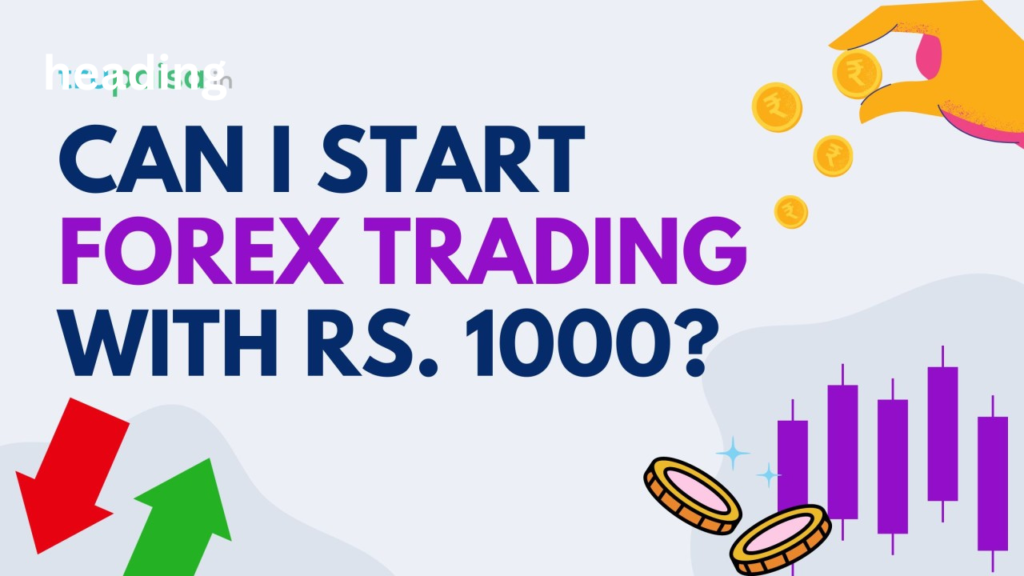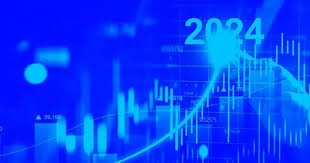
Broker Requirements
Different forex brokers have different minimum deposit requirements. Check the broker’s minimum deposit requirements to ensure 1000 rupees are sufficient.Leverage: Forex trading often involves using leverage, which allows you to control a larger position with a smaller amount of money. However, while leverage can amplify profits, it can also amplify losses. Make sure you understand how leverage works and use it cautiously.Can I start forex trading with 1000 rupees? Currency Pairs: Your trading options might be limited by a smaller amount of capital. You might need to focus on currency pairs with lower spreads and lower volatility to manage your risk better.
Risk Management
With a smaller trading account, risk management becomes crucial. Always use stop-loss orders to protect your capital and avoid risking more than you can afford to lose.Trading Costs: Be aware of transaction costs, including spreads and commissions, as they can eat into your profits, especially with a smaller account.Can I start forex trading with 1000 rupees? If you’re just starting out, it might be helpful to open a demo account first to practice trading without risking real money.
Broker Selection
Choose a broker that offers micro or mini accounts, which are designed for traders with smaller capital. Ensure the broker is regulated and has a good reputation for customer service and reliability.Education: Invest time in learning about forex trading strategies, market analysis, and risk management. Many brokers offer educational resources, webinars, and demo accounts to help you get started.Trading Platform: Familiarise yourself with the trading platform provided by your broker. Can I start forex trading with 1000 rupees?Most brokers offer platforms with various tools for technical analysis, charting, and trade execution.
Psychological Preparedness
Trading with a small account can be challenging, especially when facing losses. Develop the emotional resilience to handle market fluctuations and avoid making impulsive decisions.Strategy Development: Develop a trading strategy suited to your trading style and risk tolerance. Since your capital is limited, focus on strategies that require less capital and avoid high-risk approaches.Diversification: With a smaller account, diversification might be limited. Can I start forex trading with 1000 rupees?Focus on a few currency pairs and become proficient in trading those, rather than spreading yourself too thin.Economic Calendar: Keep an eye on economic events and news releases that can impact currency prices. This can help you make informed trading decisions and avoid unexpected market movements.
Can I start forex trading with 1000 rupees?
Ensure the broker you choose is regulated by a reputable financial authority. This adds a layer of security and helps protect your funds.Practice Patience: Building a trading account takes time and patience. Focus on consistent, disciplined trading rather than trying to make quick profits.By carefully managing your capital and focusing on education and strategy, you can start trading with a small amount of money and work towards growing your account over time.Can I start forex trading with 1000 rupees?Risk-to-Reward Ratio: Establish a clear risk-to-reward ratio for each trade. A common ratio is 1:2, meaning you aim to make at least twice as much as you are willing to risk. This helps ensure that your winning trades outweigh your losing ones.
Understand Margin Requirements
Be aware of margin requirements and how they affect your trading. Margin trading can amplify both gains and losses, so it’s important to understand how much margin you need for each trade.Micro Accounts: Look for brokers that offer micro accounts where you can trade in smaller lot sizes. This allows you to trade with smaller positions and better manage your risk.Can I start forex trading with 1000 rupees? Set realistic goals. Set achievable trading goals based on your capital and risk tolerance. Avoid aiming for unrealistic profits, as this can lead to taking excessive risks.Can I start forex trading with 1000 rupees?
Practice with a Demo Account
Before trading with real money, use a demo account to practice and refine your trading strategy. This helps you get comfortable with the platform and test your strategies without risking real capital.Track your performance: Keep a trading journal to record your trades, including the reasons for entering and exiting positions, as well as the outcomes. This helps you analyse your performance and learn from both successes and mistakes.Stay Updated: Follow financial news, market analysis, and updates on geopolitical events that can impact currency markets. Staying informed helps you make more educated trading decisions.
Leverage and Position Sizing
Use leverage carefully and ensure your position size is appropriate for your account balance. Over-leveraging can lead to significant losses, especially with a small account.Avoid overtrading: Trading too frequently can lead to higher transaction costs and increase the risk of losses. Focus on quality trades rather than quantity.Avoid Emotional Trading: Emotions like fear and greed can cloud your judgement. Stick to your trading plan and avoid making impulsive decisions based on emotions.
Use technology Wisely
Utilise trading tools and software, such as automated trading systems or trading signals, if they fit your strategy. However, ensure you understand how they work and their potential limitations.Continuous Learning: Forex markets are dynamic and constantly evolving. Continue to educate yourself through books, courses, and market analysis to stay ahead.Can I start forex trading with 1000 rupees?Tax Considerations: Be aware of the tax implications of forex trading in your country. Keep track of your gains and losses for tax-reporting purposes.By applying these additional strategies and maintaining a disciplined approach, you can better navigate the complexities of forex trading and work towards achieving your trading goals.Can I start forex trading with 1000 rupees?
Technical Analysis
Deepen your understanding of technical analysis. Learn how to use chart patterns, indicators, and trendlines effectively to make informed trading decisions. Familiarise yourself with tools like moving averages, RSI (Relative Strength Index), and MACD (Moving Average Convergence). Can I start forex trading with 1000 rupees?Divergence).Fundamental Analysis: Incorporate fundamental analysis into your trading strategy. This involves studying economic indicators, interest rates, inflation, and other macroeconomic factors that can influence currency prices.News Trading: Learn how to trade around major economic news releases and events. Understanding how different types of news impact currency markets can help you anticipate and react to market movements.
Diversification Across Markets
While your capital may be limited, consider diversifying across different currency pairs or financial instruments (e.g., commodities, indices) to reduce risk. Ensure you understand the characteristics and behaviours of each market.Trade Management: Develop a solid trade management strategy. This includes setting proper stop-loss and take-profit levels, adjusting your trade size based on volatility, and trailing stops to lock in profits as the market moves in your favour. Hedging: Explore hedging strategies to protect your positions against adverse price movements. This could involve taking offsetting positions or using options and futures if available.
Risk-Reward Optimisation
Continuously evaluate and optimise your risk-reward ratios. Adjust your trading strategy based on performance metrics and changing market conditions.Automated Trading: Investigate automated trading systems or Expert Advisors (EAs) if you’re interested in algorithmic trading. Automated systems can help execute trades based on predefined criteria and reduce emotional bias.Psychological Discipline: Work on developing psychological discipline. Forex trading requires patience, self-control, and the ability to handle stress. Practice mindfulness or other techniques to manage stress and avoid emotional trading.Community Engagement: Join trading forums or communities to share insights, strategies, and experiences with other traders. Engaging with a trading community can provide valuable feedback and support.
Continuous Improvement
Regularly review and refine your trading strategies. Markets evolve, and what works well today might need adjustment in the future. Stay adaptable and open to learning new techniques.Risk Assessment: Periodically assess the risks associated with your trading approach. This includes evaluating potential market risks, operational risks, and liquidity risks.Scalping: If you’re interested in short-term trading, consider scalping, which involves making numerous small trades to capture minor price movements. This requires a solid understanding of technical analysis and quick decision-making.Leverage Use: Be cautious with leverage. Although it can amplify returns, it also increases the risk of significant losses. Start with lower leverage and gradually increase it as you gain experience and confidence.
Regulatory Changes
Stay informed about regulatory changes and updates in the forex market. Regulations can impact trading practices, broker requirements, and market conditions.Broker Tools: Explore additional tools and features offered by your broker, such as economic calendars, trading signals, or advanced charting tools. Can I start forex trading with 1000 rupees? These can enhance your trading strategy and provide valuable insights.By integrating these advanced strategies and continually enhancing your trading skills, you can improve your chances of success in forex trading and better manage the challenges associated with a small trading account.
Algorithmic Trading
If you have programming skills, consider developing custom trading algorithms or scripts. Algorithmic trading can automate decision-making based on complex criteria, backtest strategies, and execute trades faster than manual methods.Quantitative Analysis: Explore quantitative analysis techniques, which involve using statistical and mathematical models to identify trading opportunities. Techniques like regression analysis and machine learning can offer deeper insights into market behaviour. Sentiment Analysis: Incorporate sentiment analysis into your trading strategy. This involves gauging market sentiment by analysing news, social media, and trader sentiment indicators to predict price movements based on collective behaviour.
Advanced Risk Management
Implement advanced risk management techniques, such as value-at-risk (VaR) or conditional value-at-risk (CVaR), to measure and manage potential losses. These methods help quantify and manage risk in more sophisticated ways.Market microstructure: Study market microstructure, which examines how market processes, liquidity, and order flow affect price formation. Understanding market microstructure can help you make more informed trading decisions.Economic Modelling: Develop or utilise economic models that predict currency movements based on economic indicators and policy changes. Models like the Mundell-Fleming model or purchasing power parity (PPP) can offer insights into long-term trends.
Event-Driven Strategies
Employ event-driven trading strategies that capitalise on market reactions to specific events, such as central bank meetings, geopolitical developments, or corporate earnings reports.Portfolio Diversification: Consider diversifying your trading portfolio across various asset classes, such as equities, commodities, or cryptocurrencies, to spread risk and enhance potential returns.Volatility Trading: Explore strategies that take advantage of market volatility, such as straddles or strangles in options trading, if available. These strategies can benefit from large price swings, regardless of direction.Correlation Analysis: Analyse correlations between currency pairs and other financial instruments. Understanding correlations can help you identify potential hedging opportunities or anticipate movements based on related markets.Can I start forex trading with 1000 rupees?
Backtesting and Forward Testing
Rigorously backtest your trading strategies using historical data to assess their performance. After backtesting, forward-test your strategies in a live or simulated environment to validate their effectiveness under current market conditions.Can I start forex trading with 1000 rupees?Machine Learning and AI: Explore machine learning and artificial intelligence techniques to analyse market data, identify patterns, and develop predictive models. AI tools can provide advanced analytical capabilities and enhance decision-making.Seasonal Patterns: Study seasonal patterns and trends in currency markets. Some currencies exhibit predictable seasonal behaviour based on economic cycles, holidays, or other factors.Can I start forex trading with 1000 rupees?

Macro and microeconomic indicators
Deepen your understanding of both macroeconomic and microeconomic indicators. Macro indicators include GDP, inflation, and employment data, while micro indicators focus on industry-specific factors.Liquidity Management: Pay attention to liquidity conditions, especially during low-volume periods or major market events. Low liquidity can lead to increased slippage and impact your trading execution.Broker Reviews and Comparisons: Regularly review and compare different forex brokers to ensure you’re getting the best trading conditions, fees, and services. Broker performance can significantly impact your trading experience.
Regulatory and Tax Changes
Stay informed about changes in trading regulations and tax laws that could impact your trading activities and reporting requirements.Stress Testing: Perform stress tests on your trading strategy to evaluate how it performs under extreme market conditions. Can I start forex trading with 1000 rupees?This helps you understand potential vulnerabilities and prepare for unexpected events.Trading Psychology: Continue developing your psychological resilience by studying advanced concepts in trading psychology. Books and resources on behavioural finance can help you understand and manage psychological biases.Can I start forex trading with 1000 rupees?
Final
Build a network of professional contacts within the trading community. Networking can provide valuable insights, mentorship opportunities, and access to exclusive trading resources.Can I start forex trading with 1000 rupees?By integrating these advanced techniques and concepts into your trading approach, you can refine your strategy, improve your analytical capabilities, and enhance your overall trading performance.

